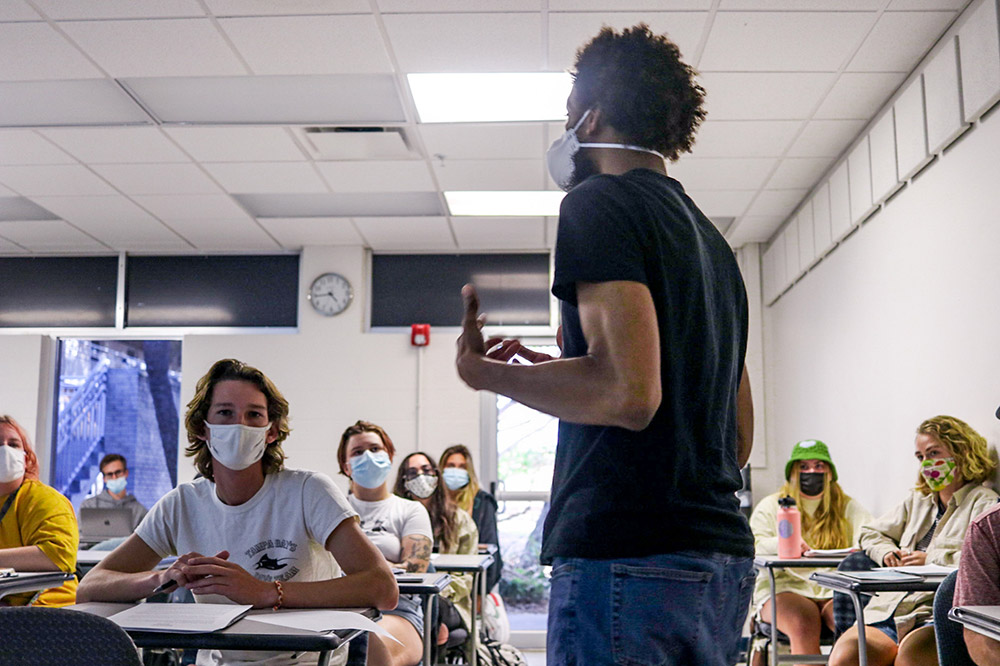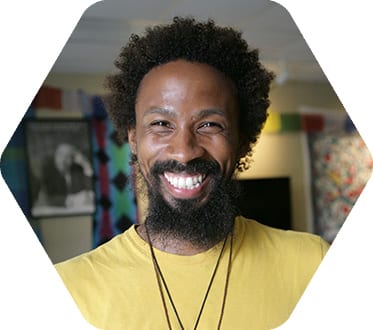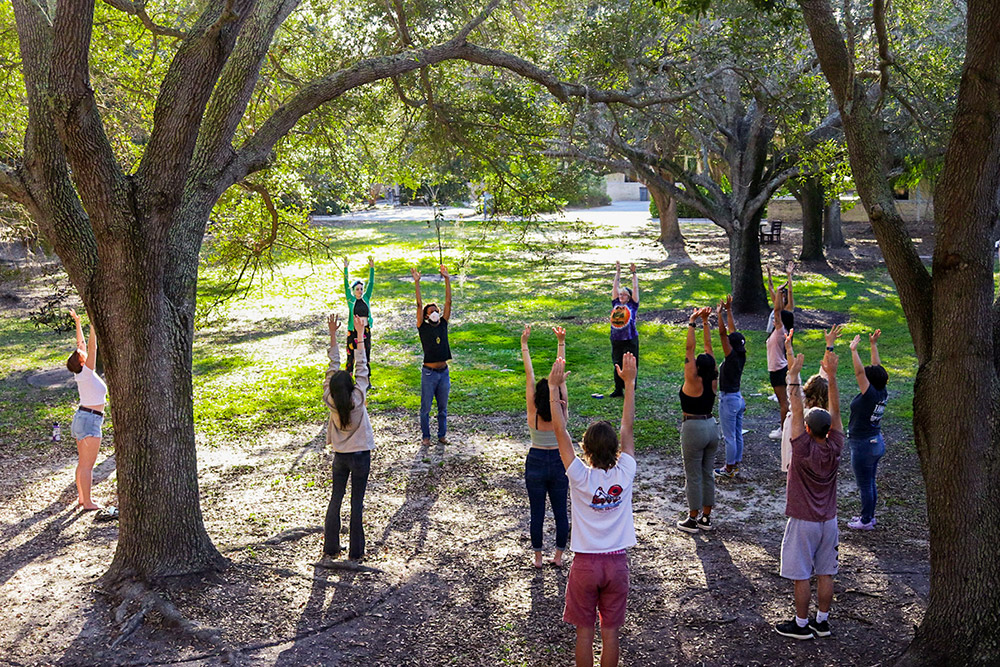
Dr. Ronald Porter ’05 leads his students in a discussion during the first meeting of his spring course Rebels with a Cause. Photo: Angelique Herring ’19
Hajar Benjoud and several of her teammates from Eckerd College Women’s Soccer decided to volunteer as a group at Creative Clay—a St. Petersburg, Florida, nonprofit that provides art training and experiences for people with neuro differences. It’s not the first activity that comes to mind when thinking about a Principles of Management and Leadership course.
“When working with people with disabilities, you have to be very observant,” says Hajar, a junior psychology student from Parrish, Florida. “Going there every week was 100 times better than I could have imagined. It made my week every week.”
Management Professor Frank Hamilton, Ph.D., let all of his Fall 2021 students choose their own Reflective Service-Learning (RSL) experience in order to complete the 20 community service hours required to pass his class.
“At the beginning of the semester, it is up to them to choose where they will volunteer,” Hamilton says. “I teach the different governance structures in an organization and ask them to observe which structure their organization operates within.”

Director of Service-Learning Ronald Porter, Ph.D.
Those observations teach the students important lessons about effective management while the students provide the nonprofits a helping hand to accomplish stated goals.
Faculty across all disciplines propose and offer RSL courses designed to place students in a variety of working environments and introduce them to various organizations in the local community. More than 25 unique classes are being offered this Spring Semester, says Ronald Porter ’05, Ph.D., director of service-learning. Instructors have a few choices when constructing their syllabi: coordinating directly with programs to place their students; providing a curated list of opportunities that fit the course requirements; or, Hamilton’s preference, leaving the choice up to the student.
“Spanish RSL courses will sometimes require that the students volunteer at an organization that offers service in the Spanish language or serves primarily Spanish speakers,” Porter says. “It is really up to the faculty, and we are here to support them.”

Dr. Porter conducts a yoga session on the Academic Quad for his class. Photo: Angelique Herring ’19
Every student must complete 20 documented hours of service during an RSL course and write a paper reflecting on the experience. Each Eckerd student currently needs 40 RSL hours to graduate.
As the instructor of this spring’s Rebels with a Cause—an American history class covering the 19th and 20th centuries—Porter will ask his students to find service opportunities with groups trying to effect change, so they can make the connection to their lessons about the country’s foundation in political upheaval.
“It’s really about how we create change,” Porter says. “Historically, from the Declaration of Independence on to women’s rights and environmental protection, people have been working to create lasting change for all. Now they’ll get to go to local nonprofits to see change agents on the ground.”












